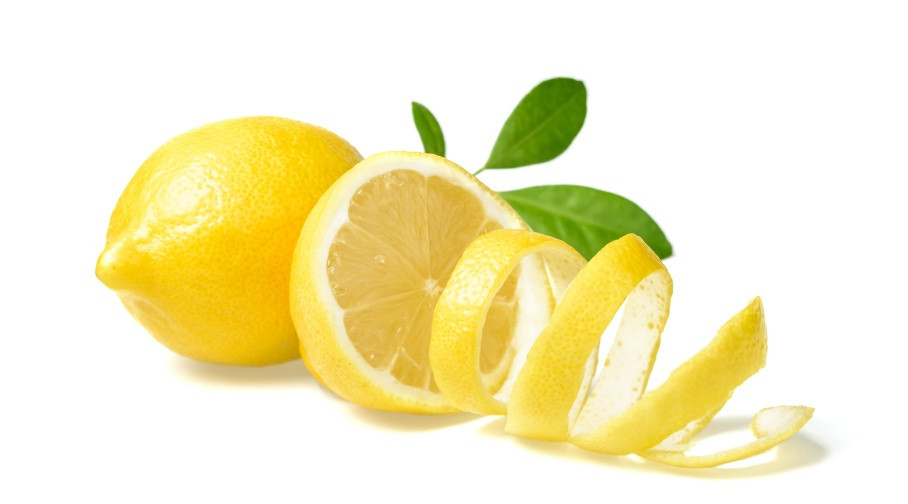When squeezing a lemon, don't throw away the peel because it has countless health benefits.
Normally, people only use lemon juice and throw away the lemon peel. However, lemon peel brings many unexpected health benefits.
Lemons are a popular citrus fruit, along with grapefruit and oranges. While the pulp and juice are most commonly used, the peel tends to be discarded. However, research shows that lemon peels have many health benefits due to their fiber, vitamins, and antioxidants, which can help with teeth, heart health, and the immune system.
Below, Dr. Huynh Tan Vu, University of Medicine and Pharmacy Hospital, Ho Chi Minh City, points out some health benefits of lemon peel:
High nutritional value
Although eaten in small amounts, lemon peel is very nutritious. Lemon peel contains a large amount of fiber and vitamin C, providing 9% of the daily value in just 1 tablespoon (6 grams). It also contains small amounts of calcium, potassium, and magnesium. D-limonene, a compound that gives lemons their characteristic aroma, is also found in the peel and may be responsible for many of the fruit’s health benefits.

Lemon peel also brings many health benefits. Photo: Hkvital
May support oral health
Tooth decay and gum infections are common oral diseases caused by bacteria such as Streptococcus mutans. Lemon peel contains antibacterial properties that can inhibit the growth of microorganisms.
In one study, researchers identified four compounds in lemon peel that had powerful antibacterial properties and were effective against common oral bacteria. Furthermore, a test-tube study found that lemon peel extract was effective against Streptococcus mutans, with higher doses being more effective.
Rich in antioxidants
Antioxidants are plant compounds that help prevent cell damage by fighting free radicals in the body. Lemon peel is rich in antioxidants, including D-limonene and vitamin C. Consuming flavonoid antioxidants like D-limonene may help reduce the risk of certain diseases, such as heart disease and type 2 diabetes.
One test-tube study determined that lemon peel had more antioxidant activity than grapefruit or tangerine peel.
Animal studies have also shown that D-limonene increases the activity of an enzyme that helps reduce oxidative stress. Oxidative stress is linked to tissue damage and accelerated aging. Additionally, the vitamin C in lemon peel acts as a powerful antioxidant, helping to boost immune health.
May have antibacterial and antifungal properties
Lemon peel may have some antibacterial and antifungal properties. Notably, in one test-tube study, the peel significantly killed and reduced the growth of antibiotic-resistant bacteria. Another test-tube study found that lemon peel extract was effective against drug-resistant fungi that cause skin infections.
Despite these promising findings, human studies are still needed to prove this link.
May boost the immune system
Lemon peel extract may boost the immune system due to its flavonoid and vitamin C content. A 15-day study feeding dehydrated lemon peel to fish showed improved immune response.
A review of 82 studies found that 1–2 grams of vitamin C per day reduced the severity and duration of the common cold in adults and children. Vitamin C also accumulates in phagocytes, a type of cell that digests harmful compounds.
May boost heart health
Research suggests that compounds like flavonoids, vitamin C, and pectin—the main fiber in lemon peel—may reduce the risk of heart disease. A review of 14 studies involving 344,488 people found that an average increase of 10mg of flavonoids per day was associated with a 5% lower risk of heart disease.
Additionally, in a study in obese mice, D-limonene reduced blood sugar, triglycerides and LDL (bad) cholesterol, while increasing HDL (good) cholesterol.
A four-week study in 60 overweight children found that supplementing with lemon powder (which contains the peel) reduced blood pressure and harmful cholesterol. The pectin in lemon peel may also reduce cholesterol levels by increasing the excretion of bile acids produced by the liver and binding to cholesterol.
May have anticancer properties
Lemon peel may have some anti-cancer properties. For example, flavonoid intake has been linked to a reduced risk of certain cancers, and vitamin C may promote the growth of white blood cells, which help eliminate mutated cancer cells.
D-limonene may also have anti-cancer properties, particularly against stomach cancer. One test-tube study found that the compound helped kill stomach cancer cells.
Similarly, a 52-week study in mice found that varying concentrations of D-limonene inhibited stomach cancer by increasing the death rate of mutated cells. However, lemon peel should not be considered a treatment or cure for cancer.
Gallstones can be treated.
Some studies suggest that D-limonene may help treat gallstones. In a study of 200 people with gallstones, 48% of those injected with a D-limonene solvent had their gallstones completely disappear, suggesting that this treatment may be an effective alternative to surgery. However, more research is needed to determine whether the D-limonene in lemon peel can dissolve gallstones.
